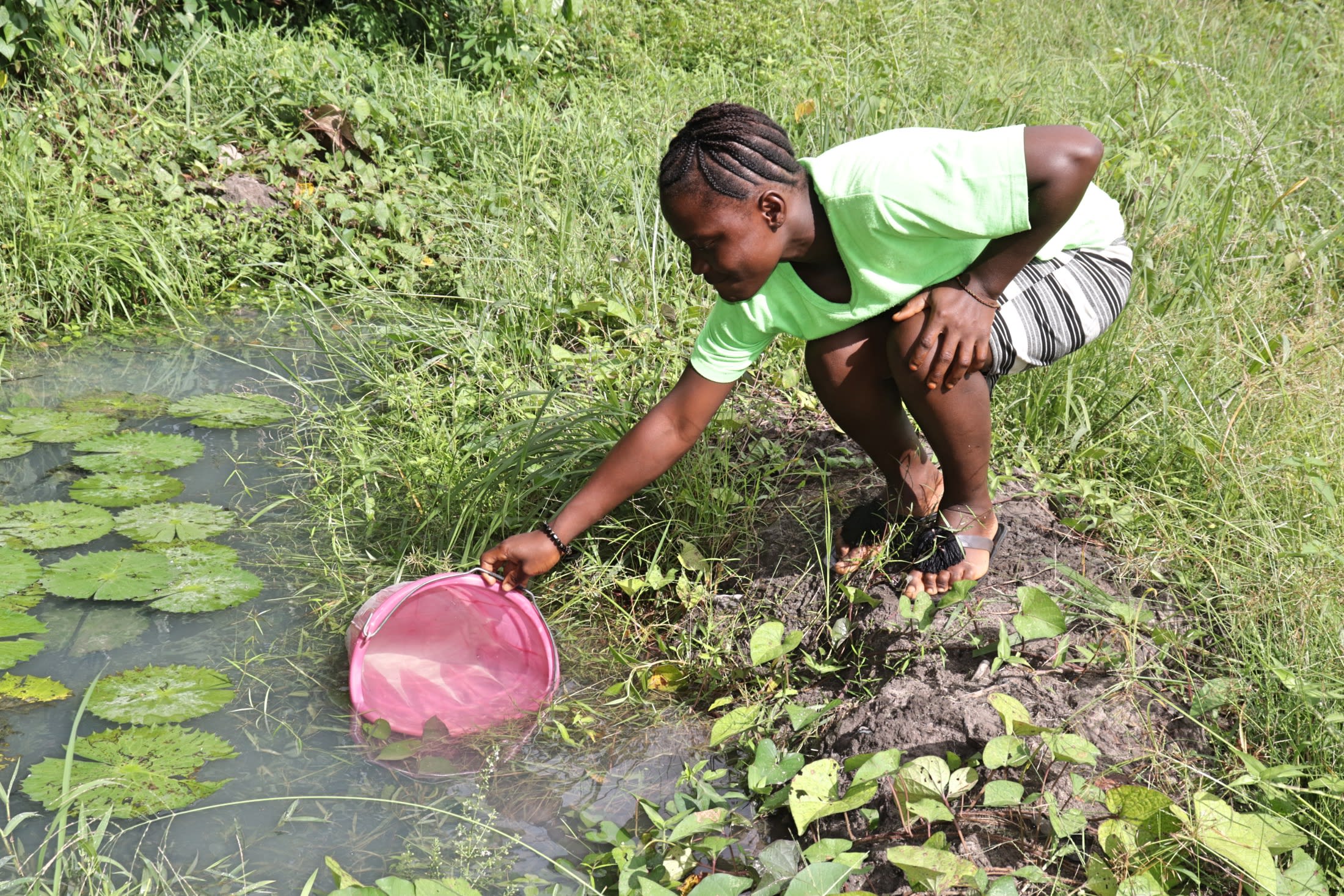The well outside the mosque in Makassa now goes dry at least one month each year, which means water is rationed for everyone. When the water in the well gets low, the 119 people of Makassa must brave the muddy, hilly path to the local swamp for water.
During the dry seasons, the well doesn't yield enough water. But in the rainy season, both the well and the swamp pool fill with mud and debris. There is never a good time to fetch water in Makassa.

For a predominantly Muslim community, water is important, as worshippers must use water to perform ablutions five times per day. The community women and children are tasked with ensuring the water containers at the mosque are full, but as the local water table has lowered, this task has become increasingly taxing. At times, prayers are delayed or missed altogether because there isn't enough water to spare, which is demoralizing for devout people who feel they can't worship properly.
And it's not only the mosque's schedule that is constantly disrupted by the water shortage.
"Water problems in my community cause me [to be] late for school," said 15-year-old Isatu K. (shown below collecting water from the swamp). "During the dry season, I suffer a lot for water because, at times, the pump I used to fetch water from gets dry. The only water source I have access to is the swamp water. The distance from my house to the [swamp] water point is a long distance. Also, the road is rough. Normally, I fall on the ground when I carry water on my head to my house."

"Water problems have been a great challenge to me because whenever I want to do my domestic work like launder clothes, fetch drinking water, bathe, cook, etc., which involves enough water, I don't have access to an adequate supply," said 35-year-old trader Mbalu Turay (carrying water in the photo below).

"At times, I have to go to the swamp to fetch water," Mbalu continued. "This water source is located far from my house, and it is challenging to me to access this water source. The road leading to this source is a footpath, and I find it difficult to walk through the road because it gets slippery, especially during the rainy season. During the month of Ramadan, I suffer a lot because, at that time, I use a lot of water for cooking, bathing, washing, and performing ablution for prayers. Due to [the] water problem in my community, it is hard to complete these tasks sometimes, and I miss the prayer schedule. Also, I am a businesswoman, and I find it hard to do my business on time due to [the] water problem because I have to go for water before I embark on trading."
The water from both of these sources is not fit for drinking. The well water has never been monitored or treated, and the swamp is open to human and animal contamination. The swamp is also used for farming, so chemicals like fertilizer and pesticide seep into the water. Consequently, community members often suffer from water-related ailments like diarrhea, skin rashes, sore throats, parasites, and more.
Rehabilitating Makassa's well will help people get their work and domestic activities done on time and help them practice their religion without worry.
The Proposed Solution, Determined Together...
At The Water Project, everyone has a part in conversations and solutions. We operate in transparency, believing it benefits everyone. We expect reliability from one another as well as our water solutions. Everyone involved makes this possible through hard work and dedication.
In a joint discovery process, community members determine their most advantageous water solution alongside our technical experts. Read more specifics about this solution on the What We're Building tab of this project page. Then, community members lend their support by collecting needed construction materials (sometimes for months ahead of time!), providing labor alongside our artisans, sheltering and feeding the builders, and supplying additional resources.
Water Access for Everyone
This water project is one piece in a large puzzle. In Kenya, Sierra Leone, and Uganda, we’re working toward complete coverage of reliable, maintained water sources that guarantee public access now and in the future within a 30-minute round trip for each community, household, school, and health center. One day, we hope to report that this has been achieved!
Training on Health, Hygiene & More
With the community’s input, we've identified topics where training will increase positive health outcomes at personal, household, and community levels. We’ll coordinate with them to find the best training date. Some examples of what we train communities on are:
- Improved hygiene, health, and sanitation habits
- Safe water handling, storage & treatment
- Disease prevention and proper handwashing
- Income-generation
- Community leadership, governance, & election of a water committee
- Operation and maintenance of the water point

 Borehole Well and Hand Pump
Borehole Well and Hand Pump













